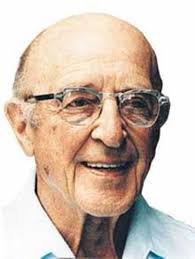Effective people
The way that practitioners behave makes a difference to treatment outcomes - for good or bad. The research evidence is consistent and well developed. We know that practitioners with certain qualities are able to build positive relationships; some people naturally display these qualities and others need to learn to adopt them. People with lived experience may fall into either category. Similar experiences can engender a natural affinity and the basis for mutual trust. Mutual aid groups such as SMART, AA and NA depend on this kind of supportive relationship.
Discovering effective practitioners…
The story starts back in the 1960s when humanist approaches to treatment emerged. Around the same time a group of researchers led by Morris Chafetz in Massachusetts set out to understand the nature of ‘alcoholism’ and improve the treatment available. They conducted studies in a general hospital and came up with a similar message to Carl Rogers, namely that the way you speak to people makes a difference to what happens next and in the longer term. Have a look at the Effective Practitioner Research page for summaries of the research. The Carl Rogers video now seems dated in language and style, but the concepts expressed were landmarks that permeate effective interventions today.
Carl Rogers, Humanist and influential American psychologist 1902-1987
Empathy
Carl Rogers was at the forefront of the humanist psychotherapies. What have become known as client-centered therapy and Rogerian psychotherapy were based on the premise that personal growth and fulfillment would occur in the setting of a genuine therapeutic relationship delivered with unconditional positive regard and empathic understanding.
Empathy is repeatedly found to be an important characteristic of effective therapy and the key ingredient for all practitioners to absorb into their practice.
(note that this is an old YouTube video and the lanuage is now old-fashioned)
Some researchers will say that what the practitioner does is the most crucial factor in the outcome of treatment - the particular intervention is of less importance. The model below shows the elements of the practitioner’s interaction that are thought to be significant…
Effective therapists are:
✔︎ Empathic
✔︎ Experienced from years helping people
✔︎ Authoritative in their sphere of knowledge
✔︎ Psychologically stable
✔︎ Interested in learning - disinterested in personal gain
and their behaviours are..
✔︎ Active listening and reflection
✔︎ Showing genuineness, respect and direction
✔︎ Adherent to a therapeutic approach (flexible use of a manual)
Martha Sanchez-Craig, Senior Researcher formerly of The Addiction Research Foundation, Toronto
Creating a working alliance
The better the working alliance between service user and therapist the more likely that good outcomes will follow. A working alliance is about how well two people are getting on but also staying task focussed. Martha Sanchez-Craig talks about effective therapists.
The ideas of empathy and a working alliance are important for delivering effective treatments, but not all practitioners will be involved in direct treatment roles. Often the first people service users have contact with an agency are reception staff or triage practitioners. The same general principles are important.
Effective practitioners tend to use a motivational style of talking: they ask open questions rather than questions expecting a yes/no answer, (which would be a response to a closed question), or questions with such intonation that the preferred answer is implicit.
If you have a public facing role why not ask a colleague or friend to help you practise open and welcoming questions. Questions that start with words like, where, when, how and who are unlikely to have implied responses, but work on your own style of motivational dialogue.
more about addiction…








